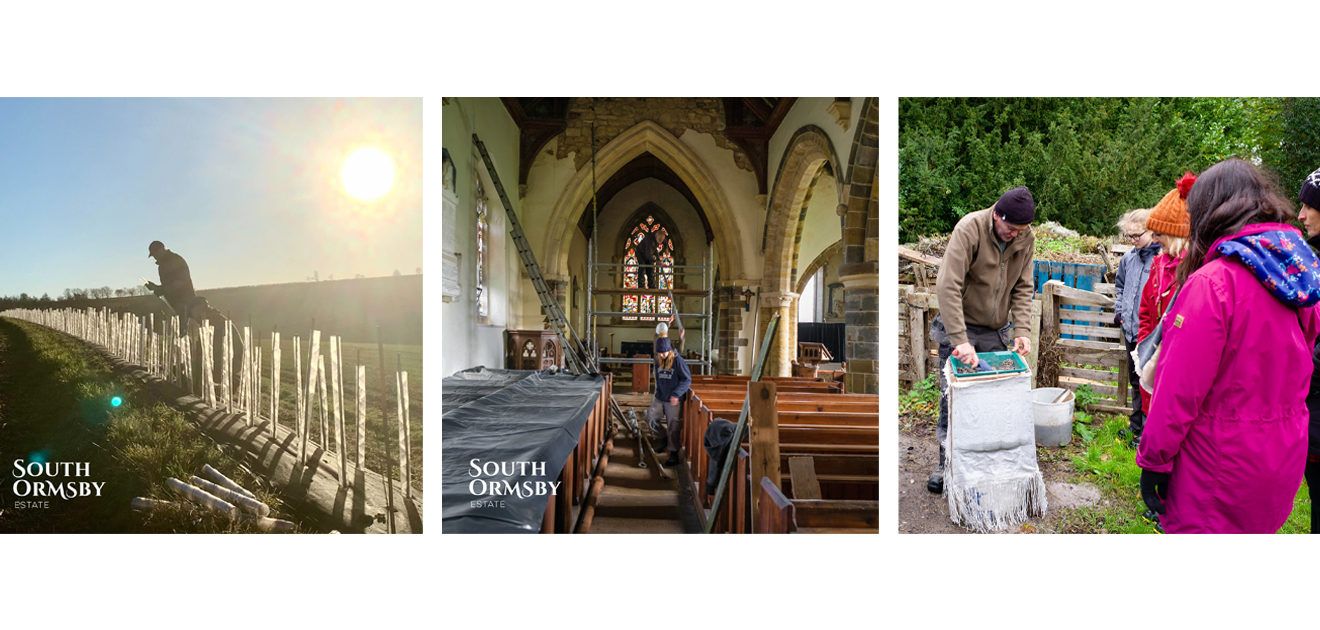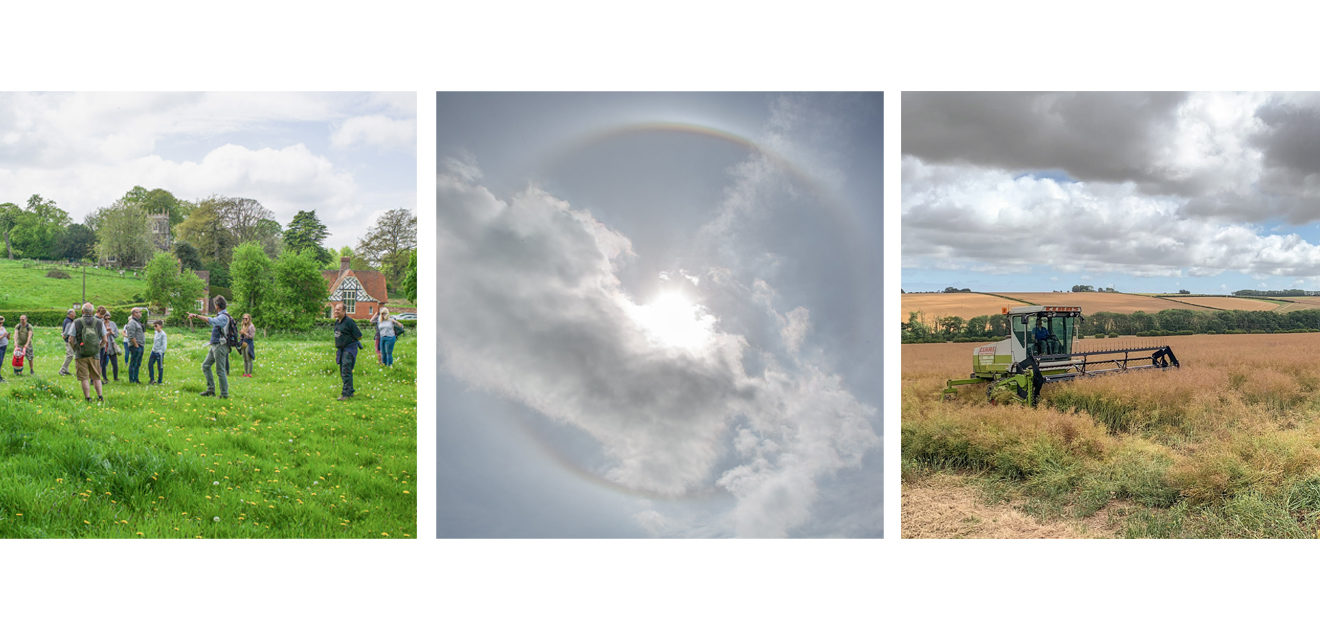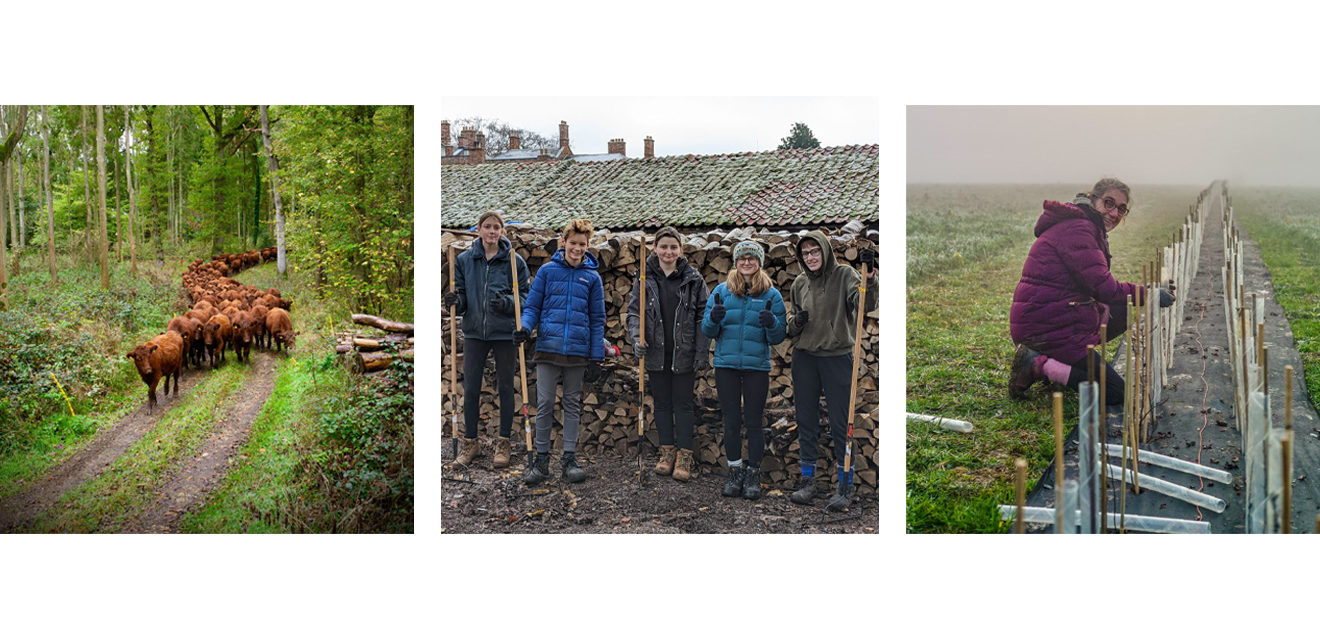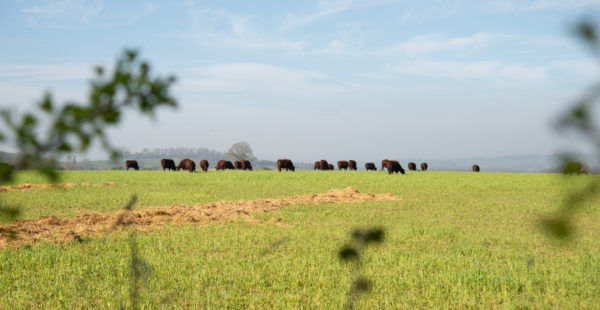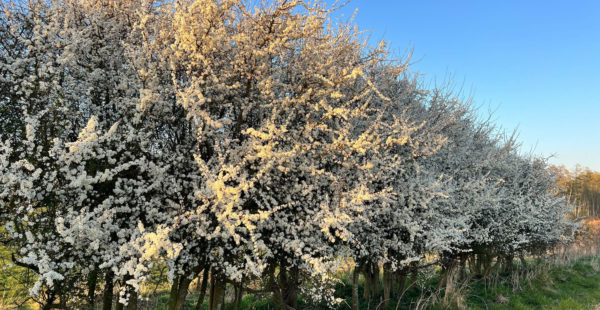A Year on the Estate: 2022 in Review
We hope you all enjoyed a safe, warm and merry Christmas, and we wish you a wonderful 2023. As 2022 winds down and the days gradually start to brighten again, we’ve put together a whistle-stop tour of an eventful year on the Estate. Enjoy!
JANUARY
We were quick out of the blocks in 2022. By mid-January, we’d already planted several-hundred metres of new boundary hedgerow as part of our ongoing programme to improve biodiversity and reverse some unhelpful effects of post-war, intensive practices. Between 2019 and the end of 2022, we’d planted 6km and we’re still going strong.
We also began our in-conversion organic year. By January 2023, our hard work across all our agricultural operations will have earned us full, official organic status.
Elsewhere on the Estate, skilled trades were hard at work. Scaffolding was up inside St Leonard’s Church and the walls received a new layer of lime render. Johnson & Smith of Lincoln started restoring the Lincoln Red Lookout, ultimately giving this time-worn structure a new lease of life as a holiday let.
Our Lincoln Red herd is accredited by the Pasture for Life Association and our commitment to regenerative practices is progressively shaping our practices. We discussed mob and rotational grazing and keeping our cattle out on the land HERE.
The Saturday Club were preparing for spring, having already installed 51 nesting boxes. In late January, our migrant greylag geese returned to the Lake, a week later than in 2021.
FEBRUARY
Early this month, the Lincoln Red herd began to welcome its new arrivals and the Keal Yard team were busy looking after cows and calves. In any given year, the bulls are introduced to the cows and heifers by 14th April. While the breed has a reliable gestation period of nine months and one week, they don’t always conceive in the first month. Typically, the calves arrive between late January and early March.
In the Walled Garden, the Saturday Club learned all about Clint’s thorough recycling technique. After log deliveries, woody scurf and grime are left behind. The team starts by sieving it all for good old-fashioned dirt that can be used to fill holes in the Walled Garden. Next, the remnants go into a barrel of water to separate wood from stone. The floating woody fragments are skimmed out and will be dried and used as garden chippings. The barrel is then emptied and the stones will be added to the stash we use for driveway maintenance.
We endured a short season of storms, with Storm Dudley and Storm Eunice sweeping through in quick succession and taking their toll on our woods. Gusts of up to 65mph and sub-zero windchill didn’t deter the snowdrops which flowered throughout our woodlands in gorgeous profusion.
MARCH
By meteorological spring, the Saturday Club had installed 100 nesting boxes across the Estate, becoming very handy with wood, hammers and nails. Their efforts were boosted by a midwinter bird survey by Richard Doan of Lincolnshire Birding. In December 2021, he took a walk around the Estate and counted: “400 fieldfare, 80 redwing, 42 blackbird, 80 yellowhammer, 150+ tree sparrow (!), 1,200 linnet, 10 brambling, water rail & 8 bullfinch”.
As the weather perked up, our Lincolnshire Buff chicks began to hatch, Martin from AW Smith & Son drilled our in-conversion organic spring barley at Brinkhill, and Andy Bonnet was pictured helping us towards our goal of planting 1.1km of new hedgerow in 2022.


